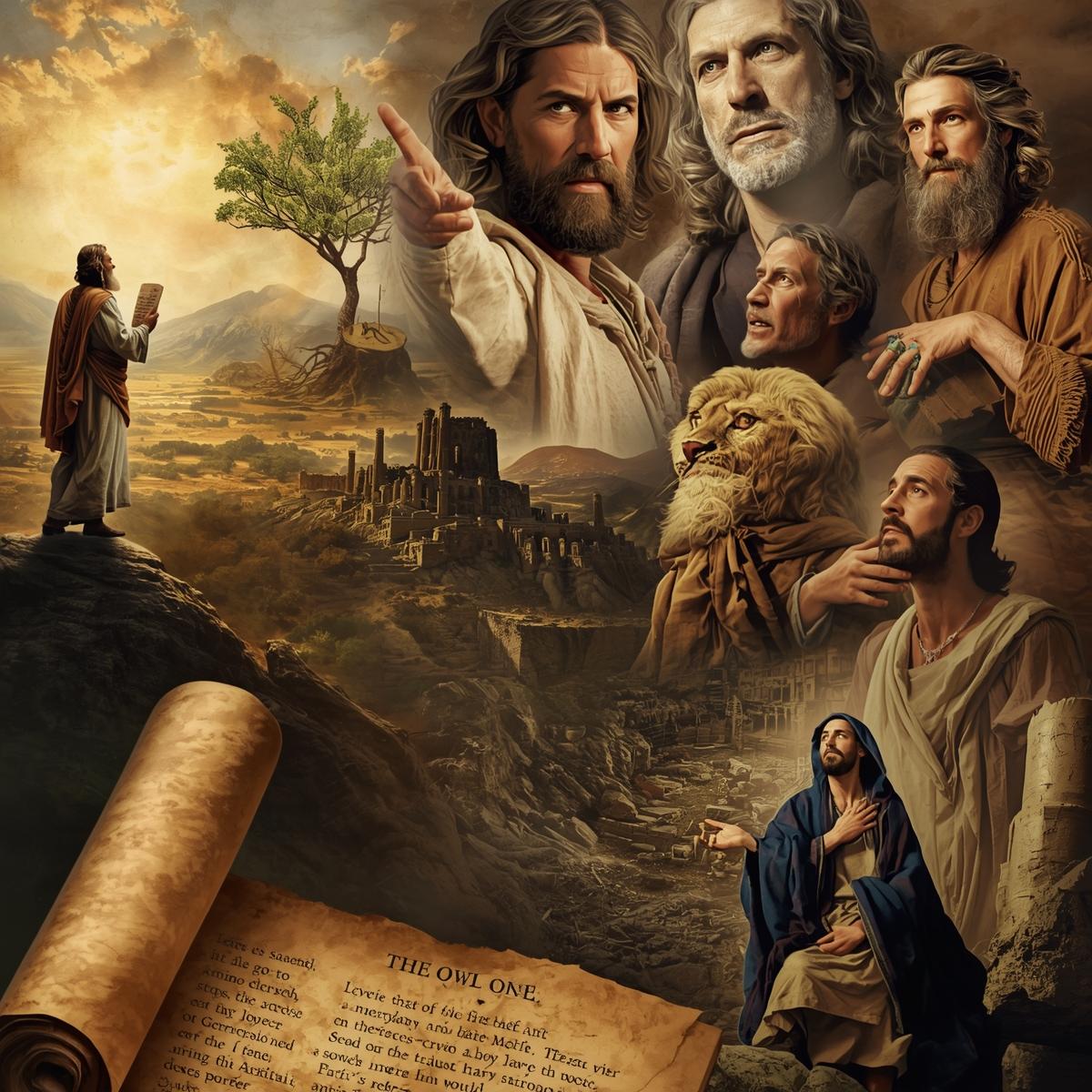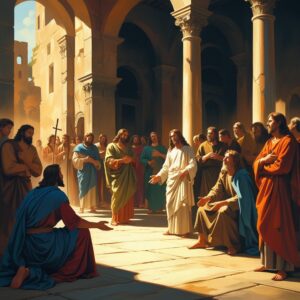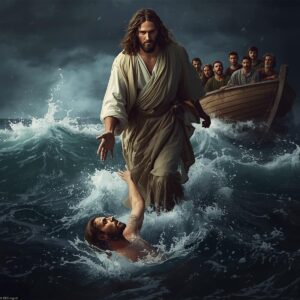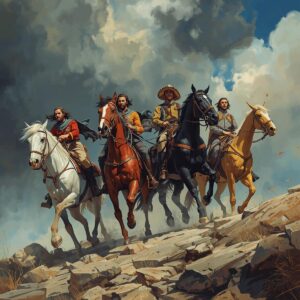Understanding the Prophets: Major vs. Minor
Before we explore their lives, it’s crucial to understand the terms “Major” and “Minor” Prophets, as they are often misunderstood.
It’s About Volume and Length of their books, Not the Importance of their books.
The common misconception is that the “Major Prophets” were more important or spiritually significant than the “Minor Prophets.” This is not the case. The distinction is purely based on the length of their written works, not the significance of their message.
- The Major Prophets: This group includes Isaiah, Jeremiah, Ezekiel, and Daniel. Their books are simply much longer and more extensive, containing detailed histories, visions, and prophecies. They are “major” in volume.
- The Minor Prophets: This group consists of the twelve other writing prophets: Hosea, Joel, Amos, Obadiah, Jonah, Micah, Nahum, Habakkuk, Zephaniah, Haggai, Zechariah, and Malachi. In the Hebrew Bible, these twelve were traditionally written on a single scroll and were known collectively as “The Book of the Twelve.” Their writings are shorter, but their messages are no less powerful, urgent, or inspired. They are “minor” only in terms of the length of their books.
Think of it this way: a major novel and a powerful, concentrated short story can be equally impactful. The message of Obadiah (one chapter) against the nation of Edom is just as divinely authoritative as the sprawling visions of Isaiah. Each prophet, whether Major or Minor, was chosen by God for a specific time and purpose, and each one contributes an essential thread to the grand tapestry of biblical prophecy.
A prophet in the Bible was not primarily a “fortune-teller,” but a “spokesperson for God.” They were called to confront sin, call for repentance, guide kings and nations, and reveal God’s character and future plans, including the coming Messiah. Their lives were often difficult and dangerous.
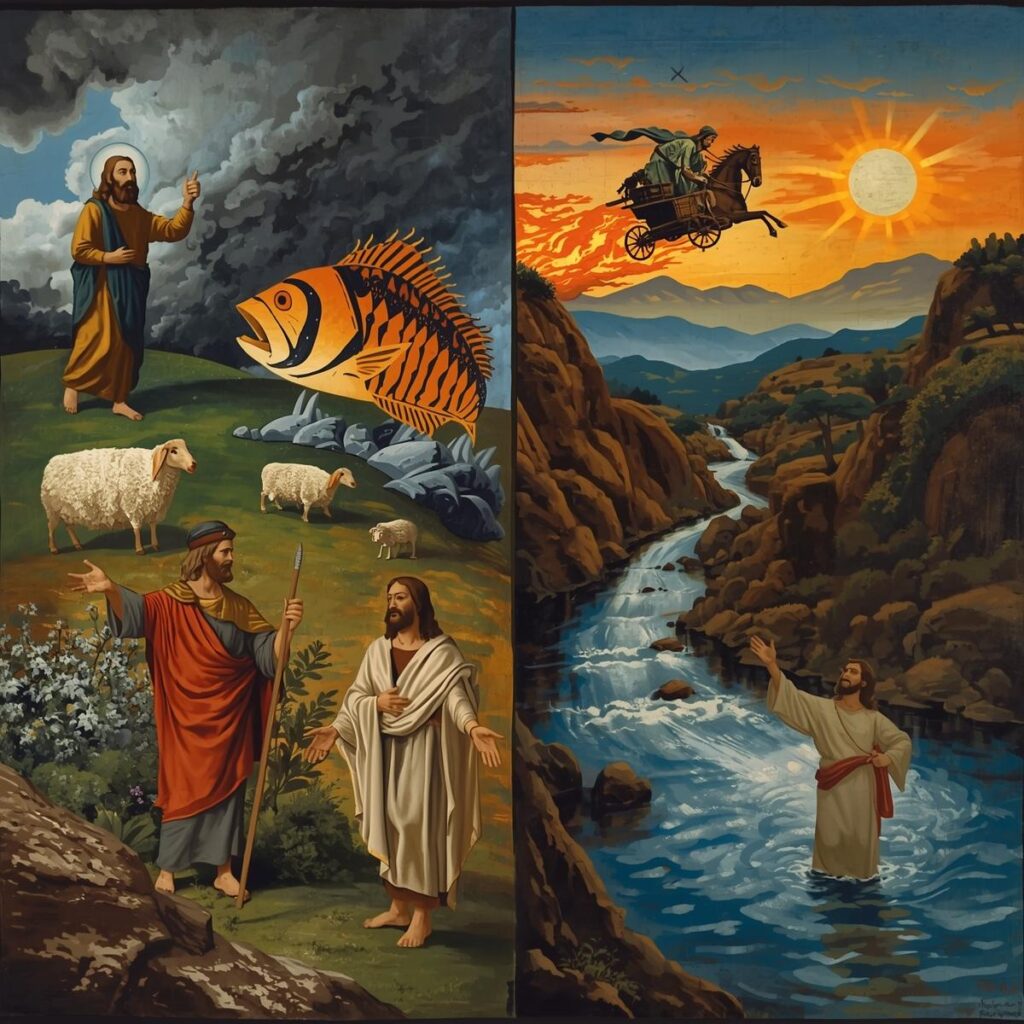
The Major Prophets (so-called due to the length of their books)
1. Isaiah
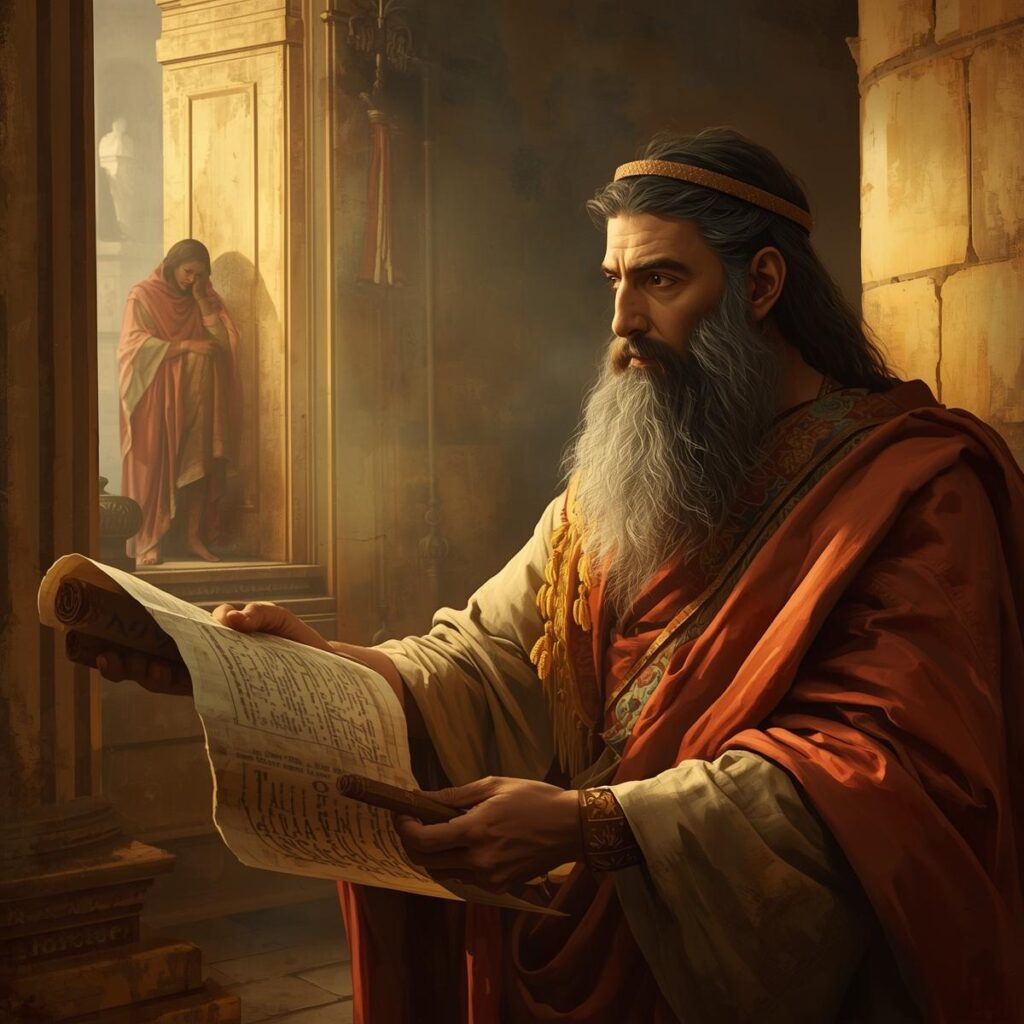
- Biography: Isaiah (“Yahweh is salvation”) was a prophet in the southern kingdom of Judah, likely of royal lineage, ministering during the reigns of Kings Uzziah, Jotham, Ahaz, and Hezekiah. He was a statesman, poet, and one of the most profound Messianic prophets.
- Timeline & Prophecies: c. 739–686 BC. He warned Judah of coming Assyrian invasion due to their sin but also promised God’s protection for Jerusalem (fulfilled when the Assyrian army was miraculously destroyed). His most famous prophecies are about the coming Messiah: a suffering servant (Isaiah 53) and a royal king: Jesus Christ (Isaiah 9, 11). He precisely foretold the coming of Cyrus the Great, who would allow the Jews to return from exile (Isaiah 44:28), over 150 years before it happened.
- Fulfillment: Many prophecies were fulfilled in his lifetime (Assyrian threat, healing of Hezekiah). His Messianic prophecies were perfectly fulfilled in the life, death, and resurrection of Jesus Christ. Cyrus’s decree was fulfilled in 539 BC (Ezra 1).
- Family & Death: He was married to a prophetess and had at least two sons. According to strong Jewish and Christian tradition, he was martyred during the reign of the evil King Manasseh by being sawn/cut in half (Hebrews 11:37 references this tradition).
2. Jeremiah
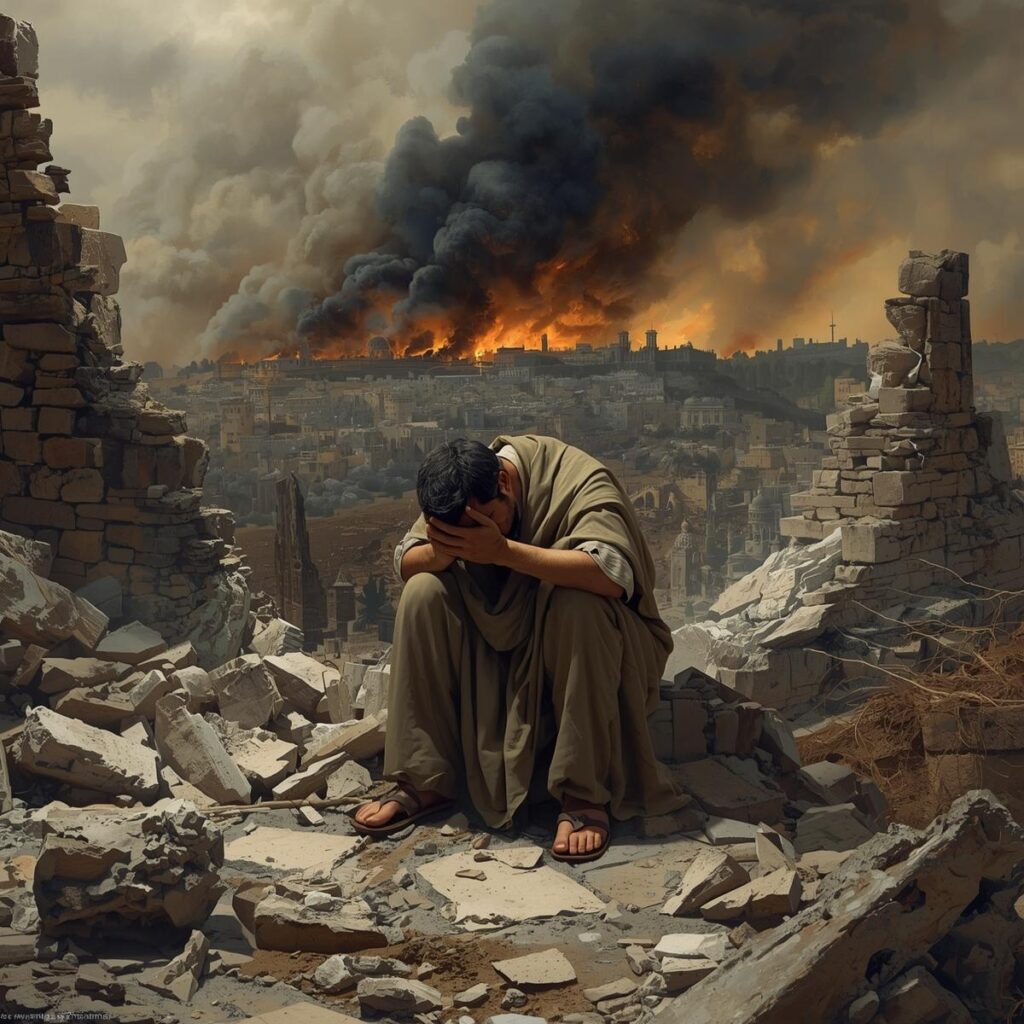
- Biography: Known as the “weeping prophet,” Jeremiah was called as a young man from a priestly family in Anathoth, near Jerusalem. He was timid by nature but given a message of unwavering judgment.
- Timeline & Prophecies: c. 626–586 BC. His primary message was the unavoidable Babylonian conquest of Judah, which he witnessed. He urged surrender to Nebuchadnezzar as God’s will. He also prophesied a “New Covenant” that God would write on the hearts of His people (Jeremiah 31:31-34). He famously bought a field as a sign of hope for a future restoration (Jeremiah 32).
- Fulfillment: The Babylonian destruction of Jerusalem and the temple in 586 BC fulfilled his dire warnings. The New Covenant was fulfilled through Jesus Christ at the Last Supper (Luke 22:20).
- Family & Death: God instructed him not to marry or have children as a sign of the coming judgment (Jeremiah 16:2). After Jerusalem’s fall, he was forcibly taken to Egypt by fleeing Judeans, where tradition says he was stoned to death.
3. Ezekiel

- Biography: Ezekiel (“God strengthens”) was a priest taken to Babylon in the first wave of exile with King Jehoiachin in 597 BC. He began his prophetic ministry in Babylon by the Kebar River.
- Timeline & Prophecies: c. 593–571 BC. His prophecies are known for their bizarre and vivid visions (the wheel within a wheel, the valley of dry bones). He explained why the exile happened (God’s glory departed from the temple due to sin) and provided a detailed blueprint for a future restored temple and a renewed land, symbolizing God’s presence returning to His people.
- Fulfillment: His prophecies of Jerusalem’s destruction were fulfilled in 586 BC. His visions of restoration gave hope to the exiles and are seen by many as having both a physical fulfillment (the second temple) and a future, spiritual fulfillment (the New Jerusalem in Revelation).
- Family & Death: His wife died suddenly as a sign to the exiles (Ezekiel 24:15-18). The Bible does not record his death, but tradition suggests he died a natural death in Babylon and was buried there.
4. Daniel

- Biography: Daniel (“God is my judge”) was a young noble from Judah taken to Babylon in 605 BC. He served in the highest levels of the Babylonian and Medo-Persian governments, maintaining his integrity and faith despite immense pressure.
- Timeline & Prophecies: c. 605–536 BC. His book contains famous historical narratives (Fiery Furnace, Lion’s Den) and profound apocalyptic prophecies. He accurately outlined the rise and fall of empires (Babylon, Medo-Persia, Greece, Rome) and gave the most precise Old Testament prophecy of the coming Messiah, pinpointing the year of His appearance (Daniel 9:24-27).
- Fulfillment: The succession of world empires happened exactly as prophesied. The Messiah – Jesus, began his public ministry and was “cut off” precisely in the timeline Daniel foretold.
- Family & Death: The Bible does not mention a wife or children. He lived a long life serving foreign kings and receiving visions. He likely died of old age in the Medo-Persian Empire.
Continue to the Minor Prophets

